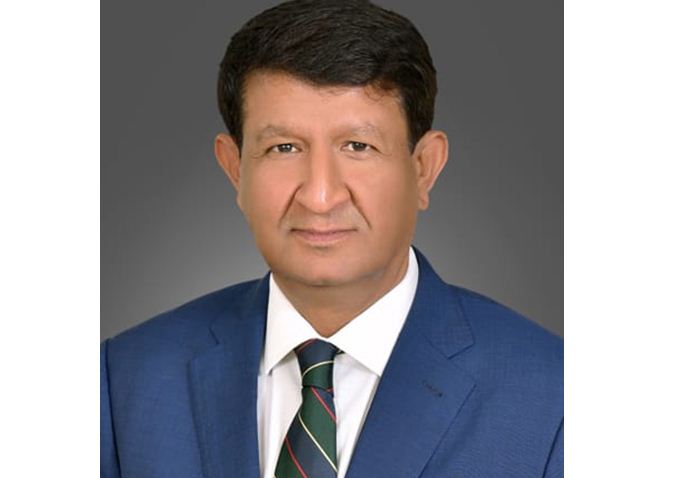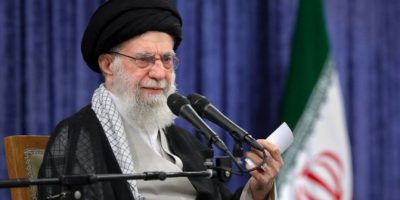Taming the Taliban

Taliban leaders were also engaged by the US and other Western countries. They also had a diplomatic presence in Washington. But mere diplomatic recognition or the provision of economic support did not prove to be an effective hedge against Taliban repression at home or their facilitation of terrorism abroad
Ishtiaq Ahmed
The Taliban have emerged as an unrivalled force in Afghanistan. For the first time, they have taken full control of the country without any formidable military resistance in the foreseeable future. This leaves the world with no option but to deal with Afghanistan’s new political reality.
With the withdrawal of foreign forces, the Afghan people also will have to adjust to the new normal under the Taliban-led rule. The transformation is already apparent in Kabul, where female TV anchors have opted to wear the hijab, no doubt out of fear of the Taliban. Apart from a couple of instances of Taliban gunmen shooting unarmed civilians, an eerie silence persists in urban centers.
Meanwhile, the Taliban are preparing to constitute the government. They have also held talks with former President Hamid Karzai and senior official Abdullah Abdullah, which confirms their declared intent to share power with other Afghan leaders. Their spokesman also recently reassured that there would be no retribution against those who fought against the Taliban, no restrictions against women going to work if they adhere to Shariah values, no curbs on the private media as long as it does not oppose Afghan values, and no Afghan havens for international terrorists.
Such assurances are meant to win over public support at home and seek international recognition of the incoming Taliban-led regime.
Given that the urban educated middle class of Afghanistan has tasted the fruit of freedom, democracy and development, sporadic instances of public protests may continue, but they are unlikely to spur a mass movement, and hence can be managed without much effort.
Hence, the onus of ensuring that the Taliban’s practical conduct in government reflects the commitments they have made in public lies effectively on the shoulders of the international community. This responsibility begins with the instant issue of diplomatic recognition.
The Biden administration is currently trying to recover from its biggest foreign policy disaster by talking tough on the Taliban and persuading its European allies to defer their diplomatic outreach to the militants. The UK may oblige, but other European countries may go ahead in engaging the Taliban.
Pakistan, China, Russia, Central Asian republics, Iran and other regional states, which share respective concerns or interests regarding Afghanistan, are not beholden to the US and, therefore, will take the Taliban at their word and recognize the new Afghan regime as and when it is formed.
Thereafter, the key challenge will be to ensure that the Taliban strictly comply with their commitments on women and minority rights, freedom of speech and relations with the world. The Taliban-led regime will be in dire need of international financial support, which must also be made conditional on its internal conduct and external behavior.
However, if recent Afghan history is any guide, the previous Taliban regime was also recognized, if not by the world at large, by three influential Muslim countries, including Saudi Arabia, Pakistan and the UAE. Taliban leaders were also engaged by the US and other Western countries. They also had a diplomatic presence in Washington. But mere diplomatic recognition or the provision of economic support did not prove to be an effective hedge against Taliban repression at home or their facilitation of terrorism abroad.
Therefore, something beyond diplomatic recognition and economic assistance needs to be worked out in order to nudge the Taliban, who are more confident today than ever before, toward cooperative international conduct. There is one big opportunity on the horizon.
It is a fact that the Taliban have taken over the country without much resistance, and that the guns have gone quiet across the nation, perhaps for the first time in the past 40 years of consistent warfare. Hence, the probability of renewed civil war or regional proxy war is also nowhere in sight.
Afghanistan is therefore ripe for a major transformation from geopolitics, which has been a major source of conflict, to geoeconomics, which can integrate it with the neighboring countries of Central and South Asia in mutually beneficial economic cooperation.
In this respect, there are several regional economic projects in which progress has remained hostage to the persisting security challenge inside the country. The gas pipeline agreement between Turkmenistan, Afghanistan, Pakistan and India, and the Central Asia-South Asia power project between Kyrgyzstan, Tajikistan, Afghanistan and Pakistan have been pending for more than a decade. These projects seek to link the energy-rich Central Asia with the energy-starved South Asia, with Afghanistan providing the most crucial corridor.
The onus of ensuring that the Taliban’s practical conduct in government reflects the commitments they have made in public lies effectively on the shoulders of the international community.
The China-Pakistan Economic Corridor, a flagship project of China’s Belt and Road Initiative, can also be extended to include Afghanistan. China and Pakistan both desire so. Under this project, which began in 2014, Pakistan has been able to build dams and construct highways, which are not that far from the Afghan border.
Ultimately, such regional integration projects bind the participating nations in a chain of interlocking economic interests, thereby ensuring that their regimes stay focused on economic progress at home and strive for peace in the region. The Taliban-led Afghanistan should not be an exception.
Ishtiaq Ahmad is a former journalist, who has subsequently served as the Vice Chancellor of Sargodha University in Pakistan and the Quaid-e-Azam Fellow at the University of Oxford. Courtesy Arab News
Related News

Martyr’s Blood Speaks, Rise, Muslim Ummah
Sadaf Noreen Awan The martyrdom of Syed Ali Khamenei (1939-2026) along with his family includingRead More

After Khamenei: Iran, America and the World
Dr. Muhammad Akram Zaheer The spectre of a direct war between Iran and the UnitedRead More


Comments are Closed